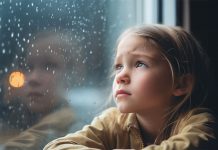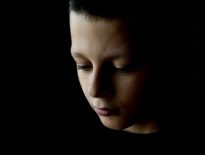Let’s not go back to the abnormality of before! This is one of the messages which the French hung from their balconies on May 1, when the activities that would usually happen on this national public holiday could not take place. What can we change and what is worth changing after COVID-19?
Long before the pandemic, we tacitly accepted, both on an individual and a collective level, a long chain of abnormalities, of which we suddenly became aware in the eye of the storm, notes Romanian novelist Matei Vișniec, in an article from Dilema veche.
The pandemic has shown us that even in our homes not everything was peachy and that there was a lot to change.
Going back to simplicity
“What I don’t understand is why we haven’t made these changes earlier”, says Cathy, a teacher and mother of three.
The lockdown found her during her maternity leave, focusing on her household and her children, caught up in a well-known routine. Still, the pandemic helped her not only to structure and to manage her time, but also to enjoy every task that she would otherwise mechanically tick off her list.
The most important lesson she has learned is that she can live simply yet abundantly at the same time.
At the beginning she would keep strict tabs on everything that was being bought and consumed in the house. Savings became a good ally of a never satisfying budget, which even helped cover the costs of a few food packages for needy people. Now her family prepares sourdough for bread, never throws food or bags away, or waste anything, not even matches, says Cathy.
Simplifying her wardrobe was the next step. Cathy decided to get rid of some of her things, especially clothes, realising that “I was using the same clothes, whether in quarantine or not”.
It is a mosaic of changes that Cathy wishes she had started earlier.
Less shopping, more time with the family
The pandemic taught Ela and Arian how to resist artificial needs and has made it even clearer to them that there is a happy life outside the constant noise of offers, sales and promotions. “I learned that we can live without the shopping that had become a way of relaxing and a source of pleasure”, says Arian.
Ela is an economist, and Arian is a commercial agent. In the past few years, their work schedule has been very demanding, and time allocated to work and family time was always in a fragile balance.
“We had the time to come to understand that life can and deserves to be lived differently”, says Ela, taking into account all of the domestic activities that they enjoyed during lockdown: activities with their children, gardening, house reparations.
Relearning the sound of silence
For Elena, a teacher in a rural area, it is the first time in 14 years that she has had the time to notice a blossoming flower, or to enjoy the trees that bloom and then let their dry flowers fall like snow. Her house has become a sleep-friendly space, a space for reading books that had long been waiting on the nightstand, to share happy memories and to carefully analyse her lifestyle and the changes that are worth trying out and keeping.
Elena admits that this experience of isolation has done her good, after a very long period of stress in which she had the feeling that life had lost its freshness, that it was running through her fingers, and that her mind no longer noticed the beauty around her, as though she was operating in a state of autopilot.
Online learning is a temporary solution, but it cannot be an alternative for everybody, says Elena. The pandemic put an end to the avalanche of exam simulations and tests that are typical in March and April, but Elena is fearful of the upcoming period of recovering classes, which will take place one way or another after schools open.
Living slower
The pandemic and the list of restrictions that ensued have meant a welcome “pause the game” period, says Persida, an economist and clinic administrator. And that is not because she is not missing anything during this period. She misses her children and her friends, she misses her adventures throughout the country or abroad (on May 5 she should have been in Saint Petersburg).
In the last few years however, her house had become a battlefield in which her work tasks and her house chores were running together like the colors on a cheap piece of cloth, and the phone would not stop ringing. Now, her house is unusually quiet, and during this break she rediscovered how good it is to have quiet all around and in one’s mind.
Emptied of the demands and the exterior pressures, space and time have started to fill up with other kinds of experiences, with a slow dance of details, which had been so easy to ignore before. For example, she enjoyed the nest which the birds built in her garden.
Persida defends every inch of this regained land of quietude and won’t allow even the daily news to spill its chaos into her space. She know that the virus is dangerous (she suffers from diseases which predispose her to complications were she to become ill from COVID-19) but she wants to take every day as it comes and to enjoy it, without fear or discouraging news. “Aren’t we the first ones to find out whether we die or we live?”
Not mistaking our life for our profession
“I didn’t have the time to breathe”, says Naomi Macaru, a resident doctor in gastroenterology, recalling all the tasks she had been trying to juggle at the same time: shifts, master’s degree classes, exams, participating in a study and conducting a student choir.
The lockdown has taught her to get out of the daily grind and to take time for herself, becoming aware of the fact that one cannot run full speed ahead at all times, and that one cannot make the best decisions when one’s life is advancing at such an intense pace.
She also realised that she doesn’t define herself by her profession only, the one she chose out of passion. The crisis has reset her perception of human relations, too: “You realise that in life, beyond the titles you run after, your profession and your accomplishments, what truly stays with you are the people. They are what’s most important and we should invest more in the relational aspects of our lives.”
Discovering true freedom
When meeting others was only possible through a screen, her relationship with God became even stronger, says blogger and photographer Andreea Stanciu.
“I told Him what is pressuring me, I confessed all of the heaviness that lies like boulders in my heart, I lay my worries and needs in His hands, from the smallest ones—such as not having any more onion in my storage room—to the big ones, like not finding the way to my children’s hearts”, says Andreea.
And the prayer during a time of crisis has meant more than just a monologue before the gates of a copper sky: God answered, He brought healing and light to the darkness, “He opened up hearts and moved mountains” and became a truly safe haven.
A second lesson she learned during lockdown, says Andreea, can be summed up by a quote she recently found in a book by Antonie Bloom:
“Some time ago an inscription was found in the jail in Shlisselburg: With Christ we are free even here, but without Him even freedom is a prison.”
Going back to love
The pandemic and isolation have taught us lessons about unpredictability, selfishness, fear, and love for our fellow human beings, says Daniel, a pastor.
Daniel has learned that his plans and projects can go to pieces in only a few days. That’s what happened, for example, with a project that would have taken him to Papua New Guinea. A time of crisis, he says, shows us how to live by making short-term and very short-term plans.
This time has shown us new faces of fear and selfishness, says Daniel. We find ourselves looking at our neighbours as possible bearers of coronavirus, above anything else. But we also live with the fear that we might be infected ourselves, without knowing it, and making our loved ones sick as well, by planting the seeds of death and suffering around us.
The tendency to throw more food items into our basket than needed (and that were missing for a while from the shelves) have made us become aware that selfishness is a dragon with many heads and that, during stressful times, we become too blinded by our own needs to observe the needs of those next to us.
The pandemic has also taught us that true faith does not cause us to behave irresponsibly, disseminating disinformation and skepticism all around us, while doing nothing to minimise the risk.
Authentic Christianity always seeks a balance: it understands the infinite value of human life and it manifests compassion for those who have lost dear ones.
Also, Daniel says that he has learned that authentic prayer lasts and becomes even stronger, and when believers cannot gather together then people can become vectors of hope in this unique crisis, serving, sacrificing, showing their solidarity with people hit by the crisis. The pandemic acted as a mirror of what we have become in times of prosperity from before, but also an opportunity to see what love looks like in work clothes.
The normal from before? Or a new normal?
Before the pandemic, we used to claim the need for individual and collective change, but there is a risk that now, in the middle of the crisis, we may not wish to truly change, Matei Vișniec notes. In fact, hungry for the predictability and stability from before, we are tempted to postpone learning the lesson that COVID-19 is offering humanity, in order to process it later, “if we wish to recover our precious normality”, writes Vișniec.
Before rushing into asking what we already know that we might not get back, let us ask whether it may not be more helpful to analyse our lives, our priorities and values and to remodel everything that has proven to be wrong or fragile, in order to live differently in tomorrow’s world, no matter how unfamiliar or strange it might be.
Carmen Lăiu is a writer for ST Network and Semnele timpului.



















